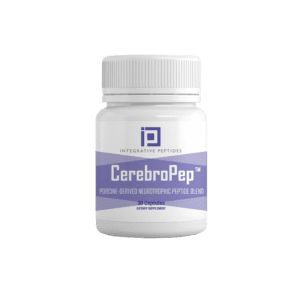Your source for Naturopathic Consultations
We’ll get to the root cause of your health concern, with one on one support from Naturopathic Doctors.
Along with Peptides | A Team of Naturopathic Doctors | Lab Tests
Sign up for free 15-Minute Consultation
Your Team of Naturopathic Doctors
Tap into the largest network of Naturopathic Doctors who can help you with various health issues. With our licensed naturopathic doctors, you'll get the same professionalism and quality that you would expect from an in-office consultation, but with the ability to communicate when and how you want! Our experienced Naturopathic Doctors will help take your health to the next level with natural science-based naturopathic solutions.
Digestive Issues
Mold Exposure
Insomnia
Hair Loss
PTSD
Weight Loss
Blood Pressure
Blood Sugar
Thyroid
Hormone Therapy
Immune System
Skincare
Prenatal
Postpartum
And much more…
Why Choose KIYA Longevity?

Affordable
The most competitive pricing available with one-on-one support with licensed naturopathic doctors! No membership is required—only pay for what you need!
Personal
One-on-one naturopathic consultations about your history, lifestyle, and health condition to provide you with a comprehensive path to get the results you want.
Natural
Our multifaceted root cause approach is based on nutrition and lifestyle modifications, stress management, and supplements, with the healing powers of nature.
-


INTEGRATIVE PEPTIDES BPC-157 PURE
$142.00 — or subscribe and save up to 5% Add to cart -


INTEGRATIVE PEPTIDES BPC-157 PURE ORAL SPRAY
$140.00 — or subscribe and save up to 5% Add to cart -


INTEGRATIVE PEPTIDES CEREBROPEP
$100.00 — or subscribe and save up to 5% Add to cart -


INTEGRATIVE PEPTIDES CAN’T WEIGHT
$70.00 — or subscribe and save up to 5% Add to cart -


INTEGRATIVE PEPTIDES TB4-FRAG MAX PEPTIDE
$175.00 — or Original price was: $175.00.$169.75Current price is: $169.75. / month Add to cart -


INTEGRATIVE PEPTIDES KPV ORAL SPRAY
$140.00 — or subscribe and save up to 5% Add to cart -


INTEGRATIVE PEPTIDES TB4-FRAG
$135.00 — or subscribe and save up to 5% Add to cart -


INTEGRATIVE PEPTIDES THYMOGEN ALPHA-1
$140.00 — or subscribe and save up to 5% Add to cart -


BPC-157 WITH CURCUPRIME (SUPERIOR ABSORPTION)
$140.00 — or subscribe and save 10% Add to cart -


Calocurb Amarasate Supplement (GLP-1 Activator Weight Loss Peptide)
$64.95 — or subscribe and save 5% Add to cart -


STEMREGEN Supplement
$179.00 — or Original price was: $179.00.$161.10Current price is: $161.10. / month Add to cart -


Ostinol Advanced 5X
$131.50 — or subscribe and save 5% Add to cart
Experience Optimal Health With Naturopathic Consultations!
KIYA Longevity offers an innovative and effective approach to the management of chronic disease, providing a new paradigm in health care delivery with a naturopathic medicine consultation.
The more we know about your health history, lifestyle, genetics, and symptoms, the more we understand what makes you, you! We provide specialty testing to gain a deeper understanding of your health to uncover the root cause of a persistent symptom. You'll receive your tailored protocol, created by your licensed Naturopathic Doctor including recommendations on nutrition and movement, lifestyle adjustments, supplements, and more.
Verified Team of Naturopathic Doctors who are committed to providing the highest quality care for your needs. Schedule a consultation with a Naturopathic Doctor today!




Select a health condition that aligns with your health needs.


Pick a provider by clicking on Naturopathic Doctors.


Click Schedule Consultation to select the best day and time that works for you.
Our Naturopathic Consultations
The Healing Power of Nature
Naturopathic medicine is built on the principle that the body naturally possesses the ability to heal itself. To support this natural healing process, Naturopathic Doctors focus on the root cause of your health condition while eliminating barriers for the body to restore itself.
Identify and Treat the Causes
Naturopathic Doctors aim to pinpoint and address the root causes of an illness rather than merely treating or suppressing the symptoms. Providing a holistic approach to promote long-term wellness and mitigate future health issues.
First, Do No Harm
To ensure safety, naturopathic doctors adhere to three key principles: they prioritize treatments and remedies that carry the lowest risk of adverse effects, strive to avoid unnecessarily suppressing symptoms, and respect the body's natural healing process by employing the gentlest approaches necessary for diagnosis and treat illness.
Doctor as Teacher
Naturopathic Doctors focus on educating their patients and promoting self-care and personal health responsibility. They also recognize the significant healing power found within the doctor-patient relationship. Through this educational approach, NDs aim to foster a deeper awareness of health practices and lifestyle choices, enabling patients to make informed decisions that support their well-being.
Treat the Whole Person
Naturopathic doctors approach each patient's care holistically, considering physical, mental, emotional, genetic, environmental, and social aspects. They also recognize the importance of spiritual health in overall well-being and support individuals in exploring their spiritual journey.
Prevention
Naturopathic Doctors focus on preventing diseases by assessing individual risk factors, genetic predispositions, environmental factors, and lifestyle on overall health. They emphasize education on healthy living, dietary adjustments, stress management, and the use of natural therapies to strengthen the body's defenses.
Let’s Keep In Touch
Sign up to join in a fresh conversation on healthy aging and be the first to hear about new releases, promotions, and more!

























